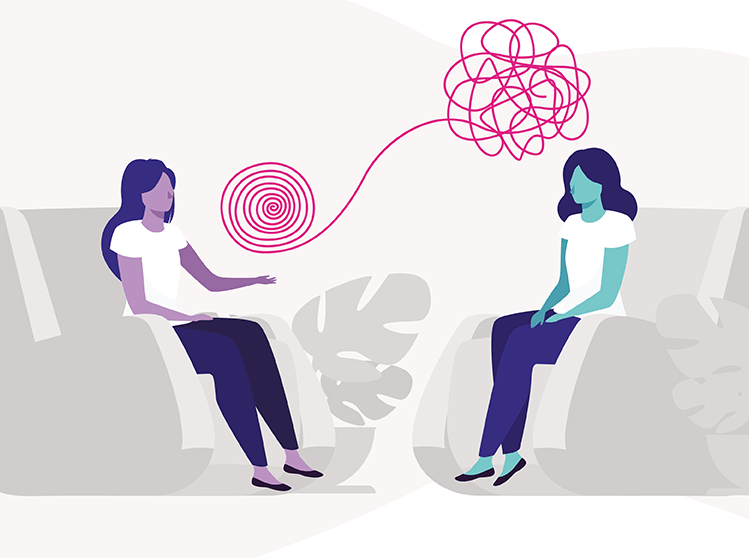Steps to Access Specialized Inpatient Mental Health Treatment
Steps to Access Specialized Inpatient Mental Health Treatment
Blog Article
Comprehensive Inpatient Mental Wellness Services for Effective Therapy
Inpatient mental wellness solutions stand for a crucial element of the healthcare system, giving a structured and intensive environment for individuals experiencing severe psychological distress. These services use a multidisciplinary method, integrating numerous evidence-based therapies to deal with the complicated demands of clients. However, the effectiveness of such detailed care expands past prompt stabilization; it additionally incorporates the transition to outpatient support, an important phase typically forgot. Checking out the subtleties of this continuum exposes significant effects for both individual healing and broader psychological health outcomes. What variables really affect this change, and just how can we improve its efficiency?
Recognizing Inpatient Mental Wellness Providers
Inpatient mental wellness services provide essential support for people experiencing serious emotional distress that can not be taken care of efficiently in an outpatient setting. These services are developed to provide an extensive degree of treatment in an organized environment, typically within a health center or specialized facility. People admitted to inpatient programs normally display severe signs, such as self-destructive ideation, serious anxiety, or psychosis, necessitating day-and-night monitoring and intervention.
The admission procedure generally entails a thorough analysis by mental health and wellness specialists, that examine the individual's mindset, history, and instant needs. When admitted, clients involve in a range of restorative methods customized to their certain requirements, consisting of medication management, specific therapy, and group sessions. This alternative strategy aims to maintain the patient's problem, promote safety, and foster coping skills.
Inpatient mental health and wellness services not only address instant health and wellness worries but additionally serve as a bridge to continuous care. By offering a controlled atmosphere, these solutions facilitate the development of therapy strategies that can be continued in outpatient setups, hence guaranteeing a continuum of treatment and boosting lasting outcomes for people with intricate psychological wellness needs.
Trick Parts of Effective Treatment
Efficient therapy in inpatient mental wellness solutions consists of numerous essential elements that promote recuperation and stablizing. A detailed evaluation is essential to identify the individual's particular requirements and difficulties. This analysis informs the development of a customized therapy strategy, which functions as a roadmap for treatment.
An additional vital element is the multidisciplinary team approach. Collaboration amongst psychoanalysts, psychologists, registered nurses, and social workers guarantees that numerous viewpoints contribute to the patient's treatment, enhancing the effectiveness of therapy. Evidence-based restorative techniques, such as cognitive-behavioral treatment (CBT) and dialectical behavior treatment (DBT), are also important, providing structured strategies that deal with maladaptive idea patterns and behavior issues.

Last but not least, a concentrate on aftercare preparation is important to guarantee a smooth transition to outpatient services, decreasing the danger of relapse and advertising long-term wellness. These cumulative components develop an efficient treatment structure within inpatient psychological wellness solutions.
Advantages of Comprehensive Treatment

Comprehensive care in inpatient mental health and wellness services uses many benefits that substantially enhance client end results. Among the primary advantages is the all natural approach to therapy, resolving not just the psychological signs however also the physical, social, and emotional requirements of clients. This thorough analysis permits customized interventions that advertise general well-being.
An additional advantage is the integration of multidisciplinary teams, which promotes collaboration among health care experts. This collaborative setting makes sure that individuals obtain collaborated treatment, lowering the threat of fragmented treatment and improving communication among caretakers. Furthermore, thorough care helps with connection of services, enabling smooth transitions from inpatient to outpatient setups, which is critical for lasting recuperation.

Finally, the structured find environment of thorough inpatient care provides a safe room for individuals to take part in therapeutic tasks, helping them develop coping approaches and strength. Collectively, these advantages add to much more effective treatment and boosted quality of life for individuals experiencing psychological health crises.
Evidence-Based Restorative Approaches
In the realm of mental wellness therapy, evidence-based restorative techniques play a vital role in guaranteeing that clients get effective and clinically supported interventions. These strategies integrate the finest offered research study with professional knowledge and patient values, cultivating a tailored therapy experience that deals with specific requirements.
Cognitive Behavior Treatment (CBT) is just one of one of the most widely recognized evidence-based site techniques, concentrating on identifying and transforming negative thought patterns and behaviors. This organized technique has actually shown effectiveness in treating conditions such as stress and anxiety, ptsd, and anxiety. Dialectical Habits Therapy (DBT) is especially effective for people with borderline personality condition, highlighting the development of psychological guideline and interpersonal effectiveness skills.
Furthermore, drug administration is usually an important part of evidence-based therapy, as psychotropic medications can relieve signs and symptoms and improve total functioning. Collective care designs, which include multidisciplinary teams, further boost the efficiency of inpatient services by ensuring comprehensive assessments and continuous monitoring.
Inevitably, the assimilation of evidence-based therapeutic techniques not only promotes favorable professional outcomes yet also equips people, promoting a feeling of agency and strength in their mental health and wellness journeys.
Transitioning to Outpatient Assistance
The shift from inpatient mental wellness solutions to outpatient support marks an important stage in a patient's healing journey. This duration requires cautious planning and coordination to guarantee continuity of treatment and to minimize the dangers of relapse or dilemma. Efficient discharge preparation should commence early in the inpatient stay, entailing a multidisciplinary team that includes psychoanalysts, psychologists, nurses, and social employees.
Key components of an effective change include the growth of an extensive aftercare plan tailored to the individual's specific requirements. This strategy ought to outline follow-up appointments, medicine monitoring, and restorative why not try this out interventions, along with identify neighborhood sources and support system that can promote ongoing recuperation.
Furthermore, client and family education is essential throughout this phase. Understanding the indicators of possible troubles and the value of sticking to treatment can empower people and their assistance systems.
Normal follow-up and review of the outpatient plan are essential to address evolving challenges. By promoting a collective partnership between inpatient and outpatient providers, the likelihood of sustained recuperation increases, eventually improving the person's lifestyle and decreasing the risk of readmission.

Final Thought
In summary, comprehensive inpatient mental wellness solutions provide a necessary framework for dealing with severe mental distress with a multidisciplinary technique. By integrating evidence-based treatments, fostering a structured environment, and advertising family members involvement, these solutions enhance therapy performance. The focus on security and the advancement of coping skills not just help in prompt recovery yet likewise helps with a smoother transition to outpatient treatment. Ultimately, such extensive care is essential for lasting mental wellness and wellness.
The admission procedure usually includes a comprehensive evaluation by psychological health and wellness experts, who assess the person's mental state, background, and instant needs.Reliable therapy in inpatient psychological health and wellness services comprises numerous crucial components that foster healing and stablizing.Comprehensive treatment in inpatient mental wellness services provides many advantages that significantly boost individual end results.The change from inpatient mental health solutions to outpatient assistance marks a crucial stage in a person's recovery journey.In recap, detailed inpatient psychological health and wellness solutions use a crucial framework for attending to serious psychological distress with a multidisciplinary method.
Report this page